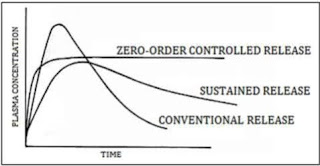What could be the reason for the motor restlessness?
A 25-year-male was diagnosed as a case of schizophrenia on the basis of disturbed thinking process, inappropriate talking and behaviour, restlessness, bursts of temper, anxiety, poor self care, disturbed sleep, delusional beliefs and occasional auditory hallucinations. He was treated with tab. haloperidol 5 mg once daily at bed time. The dose was increased to 7.5 mg daily in the 2nd week and to 10 mg daily in the 3rd week. His symptoms gradually subsided and he appeared more calm and organized. However, in the 5th week his family members reported that his restlessness has reappeared, he keeps pacing around in the room, but is not aggressive or combative. On questioning the patient admited an uncontrollable urge to move around and that he feels uncomfortable in remaining still. He is not worried or anxious, but has difficulty in falling asleep.
(a) What could be the reason for the motor restlessness? Should the dose of haloperidol be increased or decreased, or should it be changed to another antipsychotic drug?
(b) Should any other drug be given to relieve the condition?
Answer
a. The
most likely cause of the motor restlessness exhibited by the patient after 4
weeks of haloperidol therapy is appearance of a common extrapyramidal side
effect of the antipsychotic drug called ‘akathisia’. The symptom does not
appear to be due to inadequate dose of haloperidol, because the psychotic
symptoms have been relieved and the initial psychomotor restlessness had been
controlled. There is no return of anxiety, hallucinations, etc. As such, there
is no need to increase the dose of haloperidol. Dose reduction may be tried but
return of psychotic symptoms is a risk. One of the atypical antipsychotic drugs
may be substituted for haloperidol. Quetiapine with its sleep promoting effect
will be more suitable in this case. The atypical antipsychotics have a low
propensity to cause extrapyramidal motor side effects, including akathisia.
b. For early resolution
of motor restlessness, a benzodiazepine, e.g. clonazepam 1 mg or diazepam (5
mg) 2–3 times a day may be given. This may be supplemented by trihexyphenidyl 2
mg 3 times/day. In case the akathisia persists, propranolol 40 mg 2–3 times a
day may be added.



Comments
Post a Comment
Thanks